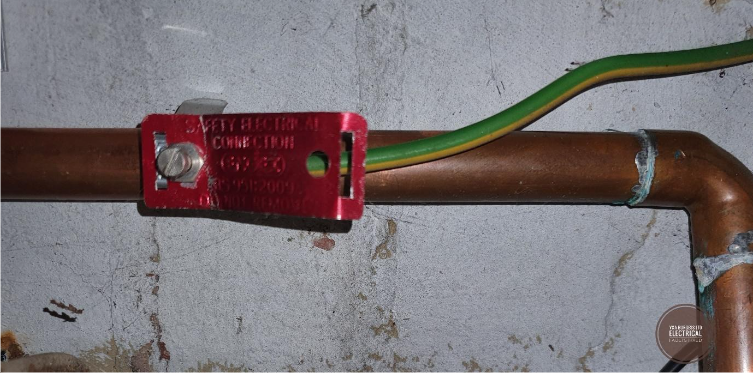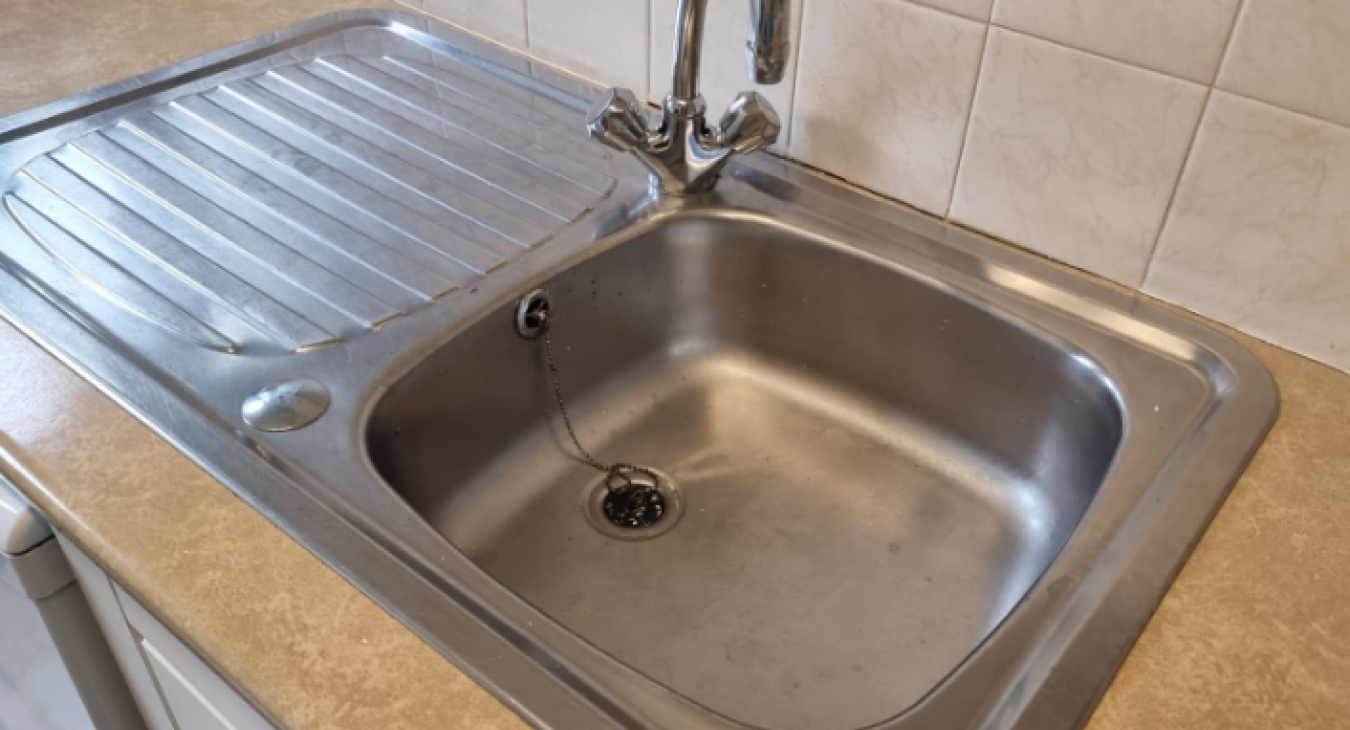Getting Electric Shock From Kitchen Sink Or Tap - Electrical Faults Fixed
Under normal circumstances, the sink, taps and pipework in our homes should be completely safe to use without any concerns. What happens though, when things start to go wrong and we receive ELECTRIC SHOCKS FROM SINK or pipework around the home?
There are various reasons for this situation occurring and we will explore these in this article:
- Faulty Electrical Appliances
- Static Shock
- Earthing Problems
- Strange Electrical Fault
- Electrical problems in the street
- Polarity Problems
1) Faulty electrical appliances
Electrical systems are not perfect and things can occasionally go wrong. From tingling sensations to full blown electrical shock, receiving any kind of interaction with electricity can be very unnerving for us and in some cases can result in fatal electric shock.
Electrical appliances regularly go wrong and when they do, they can leak electrical current to earth causing a voltage to appear on the grounding system. In most cases a GFCI outlet will trip but in cases where the outlet is not working, the electrical system is old or poorly maintained, it is likely that nothing will turn off in the event of a fault such as this.
The most common issue with electrical appliances tends to be heating elements that fail. Where a heating element has begun to fail and is leaking electrical current to earth, it is possible to receive mild electric shock especially where an electrical circuit also has faults or if the system is old.
Back to top2) Static Shock
Static shock can occur when we build up static charge on our clothing and then touch a well-earthed or well-grounded part such as a metal sink, tap or pipework. The charge stored on our body then has a safe path to earth once we touch a suitable surface. This can also occur when we touch appliances that are earthed.
Static shocks can be avoided by:
Increasing the humidity in the home – Air can dry out in the winter with our heating systems so ensuring that enough moisture is present in the air is key to preventing static shocks.
Wear more natural fibres rather than synthetic – Fleecy and polyester type materials are renowned for contributing to static shocks, try wearing more cotton and wool garments to avoid the build-up.
Wearing an anti-static wristband – This is only really a practical option if you spend your day fairly still in one place near to a decent ground.
Use shoes without rubber soles – Rubber is a very good insulator meaning that electrical currents or static discharge cannot pass through it. Wearing shoes with soles that have fewer insulating properties will mean that more static can discharge through your feet.
Discharge static throughout the day – Touching an earthed part several times throughout the day will mean that any small amounts of static can be safely discharged. The case of a metal appliance, the taps, the sink, or any other earthed parts in the home will work just fine.
Back to top3) Earthing Problems
Where earthing is poor stray electrical discharge cannot escape down a safe path to earth and as a result it is likely to build up. In extreme cases, where there is no earth or a completely broken earth then any electrical faults cannot escape and cause the main panel to switch off electrical circuits.
When electrical faults occur with no earth, it is a very dangerous situation indeed and the severity of the shock received will depend on how good your ground connection is to EARTH. If you are stood in bare feet on the ground outside then you are likely to be at real risk of electric shock when electrical faults occur.
Touching the case of a faulty appliance and then touching a well-grounded metal sink or tap is likely to result in a large potential difference (difference in voltage between the tap and faulty appliance case) and therefore severe shocks are likely.
Back to top4) Strange Electrical Fault
As an electrician myself, over the years I have come across all manner of strange electrical faults and situations where people have been receiving shocks. There can exist very strange electrical faults that appear and disappear making them difficult to find and narrow down.
If a customer complains of ELECTRIC SHOCKS FROM SINK, then I know to look almost everywhere for missing earths, damage appliance cords, loose connections throughout the system and so forth.
Strange electrical faults require a qualified electrician to check for a ground fault, to search for faulty wiring, check electrical safety connections to the pipework and much more.

(Earth connection to pipework)
We can see above what typical safety electrical connections to pipework look like. These connections are in place to help improve electrical safety and prevent electrical shocks in the event of electrical faults. Earth Bonding is a vital part of any electrical system and the correct sized earth wire is needed to ensure no voltage differences occur.
Back to top5) Electrical Problems in the Street
Where there is a ground fault or other electrical issues in the street, there is the possibility that the earthed metalwork in your home could become live. Metal light switches, socket outlets, water heater tank, kitchen tap and other metal fixtures could become live and cause electrical shocks to occur.
These situations can be caused by ‘open neutrals’, a dangerous situation where the neutral conductor outside your home becomes broken, all the power appears to go off and all the metalwork becomes live!
Back to top6) Polarity Problems
In every appliance, electrical socket, switch and consumer unit, there is a correct way to wire things up. When line and earth, neutral and earth or line and neutral are wired incorrectly inside the home or outside, there are POLARITY PROBLEMS.
These types of situations can result in anything from a slight shock to severe shocks or cardiac arrest as metal parts that are supposed to be connected to earth are inadvertently connected to live conductors in the electrical system.
Where there are suspected polarity problems in the wiring system, a qualified electrician should be called to investigate and carry out and necessary repairs.
Back to top7) Should Circuit Breakers Trip?
When metal pipes and water faucets become live, the circuit breakers will not generally trip. These metal parts should be correctly earthed in order to cause a circuit breaker to trip and even then, it is not guaranteed.
A circuit breaker will only protect the electrical cables and appliances from gradual overload and large electrical fault current overload.
The devices are still useful and should still be installed but are no help if you are getting ELECTRIC SHOCKS FROM SINK, for assistance with that you really need…….
Back to top8) What about GFCI or RCD protection?
Ideally, we all want a ground-fault circuit interrupter or RCD (Residual Current Device) switch installed somewhere in the electrical installation.
An RCD or GFCI is a life saving device that detects missing electrical currents from the electrical wiring and trips the affected circuit off. The assumption is that any missing electrical current is passing through a body that is receiving an electrical shock.
An RCD or GFCI is sometimes installed as the main breaker in the electrical panel protecting the whole system. In more modern systems, each electrical circuit will have its own GFCI or RCD to protect individual parts of the electrical system.
Back to top
Read more articles
- Log in to post comments


